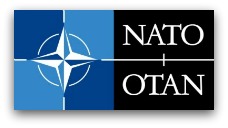Looking East, looking South. The future of NATO-Russia relations
Organized by ECFR Madrid and co-sponsored with NATO, on 14th June, 2016
Guests
Dominik Jankowski (Polish Ministry of Foreign Affairs), Gustav Gressel (ECFR Visiting Fellow),Petr Lunak (NATO), Elena Gómez Castro (Deputy Director on Security Affairs, Spanish Ministry on Foreign Affairs), Florentino Portero (Professor at Universidad Francisco de Vitoria)
Chaired by
Francisco de Borja Lasheras, Cristina Manzano, Marisa Figueroa
June 14th 2016
AC Palacio del Retiro, Alfonso XII n 14, Madrid
As Allies head towards Warsaw, in early July, for the NATO’s Summit, the need to reinforce allied and European cohesion on security and defence matters seems more pressing than ever. In uncertain times, with a sense of rising insecurity, our systems struggle to tackle a myriad of threats and challenges, and to maintain internal consensus all along. There is indeed a long list of issues on the Alliance’s agenda: from tackling Russia’s encroachment in Ukraine or even allied airspace, to cyber security, Afghanistan – or even arresting the dramatic migration crisis in the Mediterranean. The overall state of affairs in European security, and of security in Europe, is bleak, after the annexation of Crimea and Russia’s actions in Eastern Ukraine, but also after Paris, with the spectre of more jihadist attacks in European cities. In addition, the notion of hybrid wars and hybrid interferences is increasingly central, coupled with information wars –and the rise of xenophobic, anti Western and anti European narratives. The future role of the US and a new Presidential administration does also raise eyebrows.
Since the Wales Summit 2014, a number of decisions have been taken to beef up the Eastern Flank, providing reassurance to Allies. Now the question is how to strengthen deterrence and the credibility of art 5 – and what commitments Allies will agree to undertake for that purpose. NATO is responding to Russia’s escalation through the 3 Ds: stepping up its defence effort, boosting its deterrence while also offering dialogue with Russia. At the same time, Europeans and NATO are looking again at crafting a common conceptual understanding of the nature of relationships with Russia. Looking ahead, what does this mean and what to expect on the future of NATO-Russia relations? In turn, how can NATO boost the independence of non-NATO European states, such as Serbia or Ukraine, that are also NATO partners?
In turn, a number of allies, fret about a perceived neglect of the so called Southern Flank, where they see their vital security interests at stake. This agenda has gained salience in the wake of jihadist attacks in European soil, planned in Syria, and the proliferation of conflicts in the South and the Middle East.
Ultimately, a fundamental challenge, chiefly for European countries, is to bridge sometimes competing strategic visions at work, strengthening convergence and providing the bones and teeth of declarations adopted at summits. The sometimes misleading dichotomy of the Eastern Flank and the Southern Flank is a case in point, but there are others. Hence, how to lay the ground for a revived pan-European strategic culture, fit for our times and age? A shared strategic vision that can strengthen our common security, preserve our democratic models – and avoid the spectre of security fragmentation in Europe? And what can individual European countries do to that extent?
ECFR Office in Madrid, building on its advocacy on East-South security synergies and European strategy, and in the framework of similar discussions in other key EU capitals, hosted a public, interactive discussion on the future of NATO, on June 14, addressing all these core issues for Western security.
This event was co-sponsored by the North Atlantic Treaty Organization.

|
10.00h. Opening remarks, by Francisco de Borja Lasheras, Director of the Madrid Office of the European Council on Foreign Relations 10.05/11.30h. The future of NATO-Russia relations: From reassurance to deterrence: perspectives from Central and Eastern European countries Dominik Jankowski (Polish Ministry of Foreign Affairs), Gustav Gressel (ECFR Visiting Fellow) and Petr Lunak (NATO), chaired by Cristina Manzano (Director Esglobal, ECFR Council Member), followed by Q & A session. 11.15h Coffee break |
|
11.30. East, South, common security: towards a pan-European strategic agreement How can Allies strengthen strategic convergence and work towards a common security agenda? What role for Europe and the EU? Francisco de Borja Lasheras (Director ECFR Madrid), Elena Gómez Castro (Deputy Director on Security Affairs, Spanish Ministry on Foreign Affairs) and Florentino Portero (Professor at Universidad Francisco de Vitoria), chaired by Marisa Figueroa (Program Manager, ECFR Madrid), followed by Q & A session. 12.30 Closure. |
https://www.flickr.com/photos/61872701@N05/albums/72157669701331046
